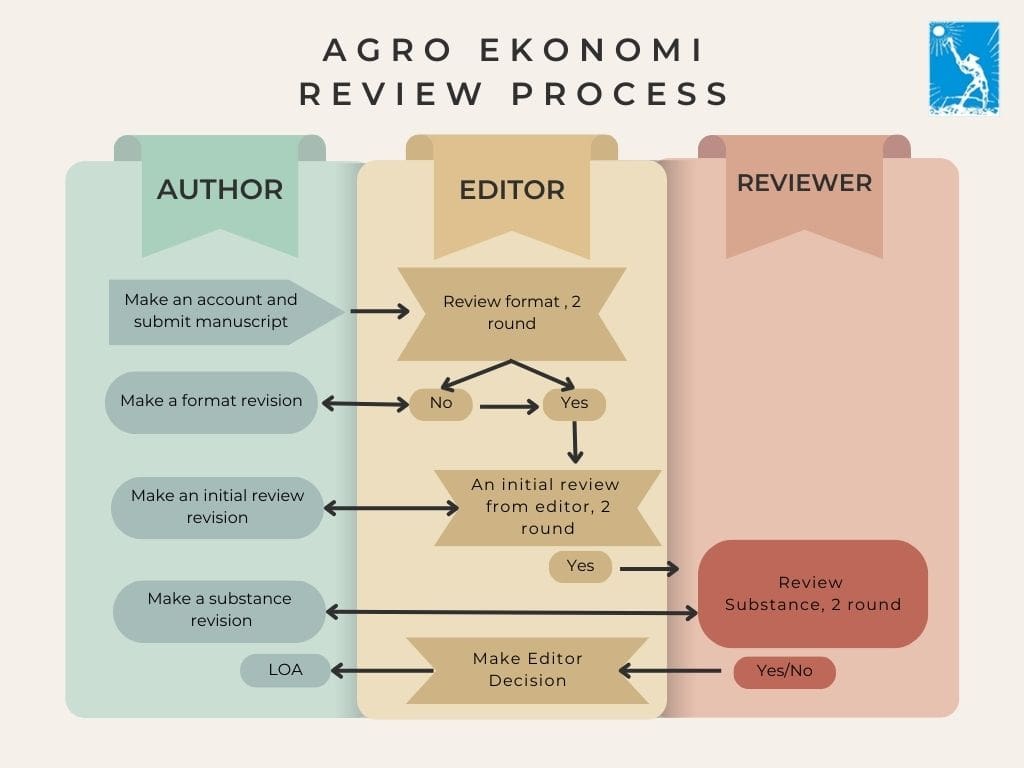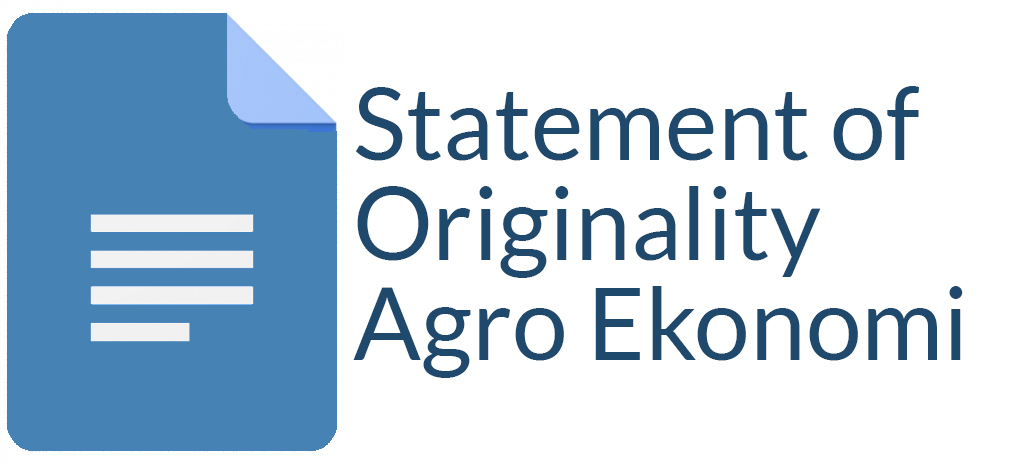Pemaknaan Pelaku Usaha Dalam Pengembangan Pangan Lokal Di Kabupaten Lombok Barat
Eka Nur Jannah(1*), Sri Peni Wastutiningsih(2), Partini Partini(3)
(1) Program Studi Penyuluhan dan Komunikasi Pembangunan , Sekolah Pascasarjana,UGM
(2) Dosen Fakultas Pertanian Universitas Gadjah Mada
(3) Dosen Fakultas Ilmu Sosial dan Politik Universitas Gadjah Mada
(*) Corresponding Author
Abstract
This study has the purpose to explain the meaning of business actors in the development of local food in West Lombok and explain the meaning of busines actors towards the involvement of primary and secondary stakeholders in the development of local food in West Lombok. This study used a qualitative method with phenomenological approach. Selection of a method purposive. Selection of informants using methods purposive ie businesses which process local food derived from terrestrial plant. The results showed that the meaning of efforts in the development of local food is positive as it can be an additional source of income for families, create jobs and expand social networks, but variations in the types of processed and flavor is still less diverse and less than optimal marketing. Primary and secondary stakeholders involved in the development of local food by providing assistance and motivation to constantly improve the quality and quantity of processed food products locally as well as marketing. But some stakeholders are not optimal involvement in the development of local food. The lack of optimization due to a lack of common ground between the businessmen and the stakeholders as well as between the stakeholders. Looking forward there are organizations that can coordinate and stakeholder businesses so that they can equate the views related to the development of local food and stakeholders can engage with the optimal local food development becomes more leverage.
Keywords
Full Text:
PDFReferences
Berger, P.L., dan Luckman, T. 2013. Tafsir Sosial atas Kenyataan: Risalah tentang Sosiologi Pengetahuan. Jakarta: LP3ES.
Chandra, H.P., Wiguna, P.A., dan Kaming, P. 2011. Peran Kondisi Pemangku Kepentingan dalam Keberhasilan Proyek. Jurnal Manajemen dan Kewirausahaan) 13 (2) : 153-150.
Djaelani, Aunu Rofiq. 2014. Teknik Pengumpulan Data Dalam Penelitian Kualitatif. Pawiyatan (e-journal) 20 (1).
Iqbal, M. 2007. Analisis Peran Pemangku Kepentingan dan Implementasinya dalam Pembangunan Pertanian. Jurnal Litbang Pertanian 26 (3) : 89-99.
Karsidi, Ravik. 2007. Pemberdayaan Masyarakat untuk Usaha Kecil dan Mikro. Jurnal Penyuluhan 3 (2) : 1-10.
Kinanthi, Resti, Subejo, dan Roso W. 2014. Motivasi Kelompok Wanita Tani dalam Diversifikasi Pangan Lokal di Kabupaten Bantul. Agro Ekonomi 24(1) : 1-11.
Moleong, L.J. 2014. Metode Penelitian Kualitatif Edisi Revisi. Bandung: Remaja Rosdakarya.
Sikhondze, Wilson B. 1999. The Role of Extension in Farmer Education and Information Dissemination in Swaziland. Journal Adult Education and Development No. 53.
Sugiyono. 2014. Memahami Penelitian Kualitatif. Bandung: Alfabeta.
Wastutiningsih, Sri Peni, Untari, DyahWoro, Agus, S., R., dan Tri Dyah. 2012. Kebijakan Pengembangan PanganLokal melalui Penyuluhan Pertanian Menuju Kedaulatan pangan di Kabupaten Bantul. Jurnal Ilmu Pertanian 16(2) : 69-75.
www.google.com. Peraturan Presiden Republik Indonesia Nomor 32 Tahun 2011 tentang Masterplan Percepatan dan Perluasan Pembangunan Ekonomi Indonesia.Diakses tanggal 10 Agustus 2015.
______________. Undang-undang Nomor 17 Tahun 2007 tentang Rencana Pembangunan Jangka Panjang Nasional 2005-2025.Diakses tanggal 10 Agustus.
Article Metrics
Refbacks
- There are currently no refbacks.
Copyright (c) 2017 Agro Ekonomi

This work is licensed under a Creative Commons Attribution-ShareAlike 4.0 International License.
View My Stats











